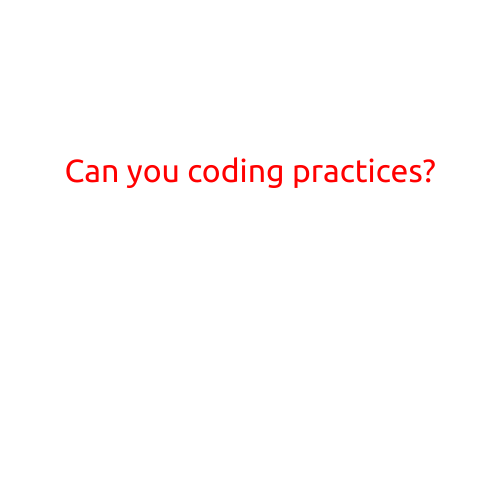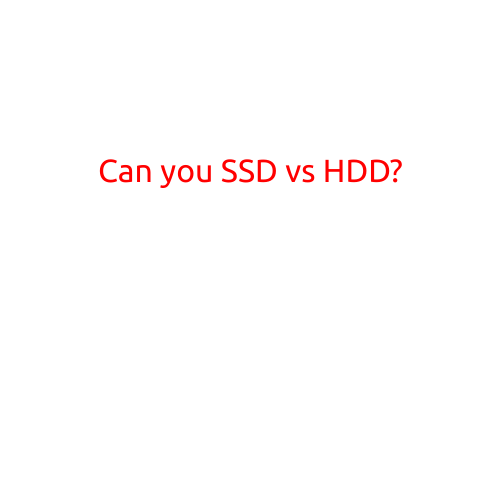
Can You “Code” Well? Effective Coding Practices for Success
In today’s digital age, coding has become an essential skill in various industries, from software development to data analysis and scientific research. As the demand for skilled coders continues to rise, it’s crucial to develop good coding practices to ensure that your code is efficient, maintainable, and scalable. In this article, we’ll explore the importance of coding practices and provide tips on how to improve your coding skills.
Why Good Coding Practices Matter
Good coding practices are essential for any programmer, regardless of their experience level or language of choice. Here are some reasons why:
- Readability and Maintainability: Good coding practices make your code easy to read and maintain. When your code is well-structured, it’s easier for others (and yourself) to understand and modify it.
- Error Reduction: Following best practices reduces the likelihood of errors and bugs in your code. This saves you time and reduces the risk of project delays or failures.
- Scalability: Good coding practices enable your code to scale as your project grows. A well-designed system can handle increased traffic, data, or users with ease.
- Collaboration: Effective coding practices promote collaboration among team members. When your code is easy to understand and maintain, it’s easier for others to contribute and collaborate on your project.
Effective Coding Practices
- Write Clean Code: Keep your code simple, concise, and easy to read. Avoid unnecessary complexity and use clear variable names and comments.
- Use Consistent Naming Conventions: Establish a consistent naming convention for your variables, methods, and directories. This makes it easier to navigate and find specific code sections.
- Keep Functions Short: Keep your functions short and focused on a single task. This reduces code duplication and makes your code easier to maintain.
- Use Comments Judiciously: Use comments to explain complex logic or outline the purpose of a specific code section. Avoid using comments as a crutch for poorly written code.
- Test and Debug: Test your code thoroughly and debug any issues promptly. This ensures that your code works as expected and reduces the risk of errors.
- Version Control: Use version control systems like Git to track changes to your code and collaborate with team members.
- Documentation: Write clear and concise documentation for your code, including comments, function descriptions, and installation instructions.
- Code Reviews: Participate in code reviews with colleagues to improve code quality, catch errors, and learn from each other’s experiences.
- Stay Up-to-Date: Stay current with the latest coding languages, frameworks, and best practices. Attend conferences, take online courses, and participate in coding communities.
- Practice, Practice, Practice: The more you code, the better you’ll become. Focus on building small projects and working on personal coding challenges to improve your skills.
Conclusion
In conclusion, good coding practices are essential for any programmer looking to succeed in the industry. By following the tips outlined in this article, you can improve your coding skills, reduce errors, and create scalable code that is easy to maintain. Remember to always write clean code, keep your functions short, and test and debug your code thoroughly. With persistence and dedication, you’ll become a proficient coder able to tackle even the most complex programming challenges.





